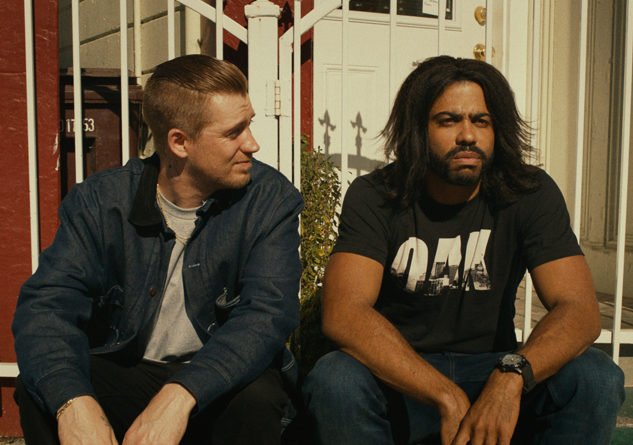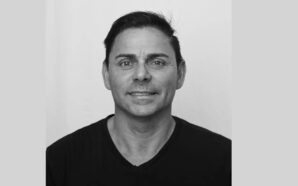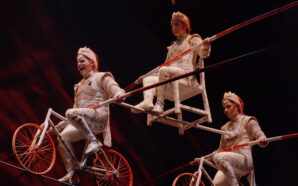Director Carlos López Estrada Breaks Down the Creation of the New Oakland Based Drama
Arturo Hilario
El Observador
Race relations, Hyphy music, hipsters and “green juice” are the different beats that the new film “Blindspotting” touches upon. Some points are humorous, some are fun, some are damned serious.
The film was written by its two lead actors, Daveed Diggs and Rafael Casal (Both are from the region). Diggs is most known for his dual portrayal of Marquis de Lafayette and Thomas Jefferson in Lin-Manuel Miranda’s Hamilton production. Casal is an award-winning poet and musician. Together they created what can be described as a crash course lesson in being from and living in Oakland.
The film revolves around the final three days of probation of Diggs’ character Collin, and how these final three rollercoasters of days turn out. Accompanying him along the way is his best friend Miles (Casal), a hot head with a penchant for bringing out the more uninhibited side of Collin.
Without giving up too much of the film’s story, this isn’t a film with a simple answer to the various questions it raises. With surreal imagery, social commentary and good old fun and drama, “Blindspotting” revels in telling this “Oakland story” dripped in Oakland style.
Carlos López Estrada is the son of Carla Estrada, one of the most well-known producers of telenovelas in the world. What is more important though is his resume. Up until his debut feature with “Blindspotting”, his work was mainly in short films and music videos. Among his credits, he has directed videos for the Bay Area based Watsky, as well as Capital Cities, Father John Misty and Passion Pit.
In the following interview, we intend to figure out just how López Estrada moved into his first feature film with “Blindspotting”, and what he did to help create the world of this vivid East Bay tale.
Hi Carlos, thanks for your time. To start off, how was it that you became involved with the project? What was it about it that attracted you to it?
I’ve known Daveed for about six years. I did a music video for him for his rap group clipping right as I was getting out of college, and we became good friends. I think we realized we had a lot of similar interests and we ended up working on six videos for clipping. He helped me out with music for a few of my projects. We ended up moving to New York at similar times, he went there to do “Hamilton” and I went there to do music videos and commercials. He introduced me to Rafa there, and we all started working together on music projects, film projects, theater things.
So, when they got a call from the producers telling them that [“Blindspotting”] was greenlit and they would be able to shoot, it really became easy for them to tell them that they wanted to work with me just because we had such a long history of collaborating on things that were similar in tone to “Blindspotting”. So, it made sense for them to bring me on board.
With your history of working with Daveed Diggs and Rafael Casal, what do you feel about this relationship ended up enriching the project or helped out in its creation?
I think working with projects that really relied on our creative history together, because we had gotten to work on projects that that directly translated to many things we did on “Blindspotting”. We had gotten to work on music videos, on theater projects, spoken word, stuff that relied heavily on music, stuff that relied heavily on verse and performance. These are all skills that came in very handy when we were putting “Blindspotting” together.
Our history of these projects informed many of the decisions that we made when filming. I think it also gave us all a sense of trust in the fact that we would be dealing with so many disciplines in the movie and we would be doing it in a way that felt cohesive. And also, we didn’t have a lot of time to prep the movie. Our history allowed Daveed and Rafa to feel comfortable knowing that even though we weren’t going to be able to spend a ton of time preparing, we would be moving in the same direction. Some practical reasons, some more creative ones. But I definitely think that all the projects we did leading up to this one informed the way we were going to execute it, informed style choices, informed the way we were communicating between Daveed, Rafa and myself. I’m very happy that we got a chance to do all these projects because it felt in a way that it was sort of preparing us for what was to come.
The film is set in Oakland. How familiar were you with the city and how did you go about choosing shooting locations and getting a feeling for the city?
It was an interesting process for me because I’d been to Oakland a few times, I was familiar with the city, but I never really spent more than a handful of days at the time there. I was jumping into this project that was essentially meant to be a love letter to the city, so I wanted to make sure that I could do a good job in capturing what I thought Daveed and Rafa thought was special about the city and what was unique about the city.
So, we spent countless hours in meetings talking about the Bay Area, hearing stories about them growing up, listening to music, watching music videos and films, meeting with families and their friends, and going on location scouts to see many of the places and the people that influenced a lot of the characters in the film. So, it was a real challenge to feel comfortable telling a story about a city that isn’t my own. But the way that we decided to handle it, I thought was the only way we could really handle it; to let Daveed and Rafa become the filter that we would run all of our creative decisions through, just to make sure that we were doing a good job in translating their story. So, they were around in pre-production, they were around in the casting and location scouting, just to make sure every choice we were making was in fact one that felt specific to the Oakland experience.
Although it is explained within the film before an interesting split screen conversation, in your opinion how did you plan on visualizing the theme of the title, “Blindspotting”? And how did this theme influence the aesthetics of the rest of the movie?
It was also a long-drawn conversation. Early on in the process Rafa and I had this conversation that people from Oakland talk about their city and think about their city as a larger than life place, and the speech in the Bay is very unique to Oakland and the music is very specific and the way people dress and the colors and the culture. We knew that the visual treatment for the film needed to be stylized and slightly larger than life as well, and colorful and exciting and unexpected. Trying to figure out how that would translate into images was interesting but I think it became something where we weren’t going to have a hard time finding the true colors of Oakland because the city is just so drenched in culture, history, color, music and art that if we casted locals, and if we shot on location and if we used the soundtrack that featured local artists, and obviously Daveed and Rafa are as Bay as it gets, all these elements would inform the look and feel of the movie.
And we didn’t shy away from bolder moves that maybe in most movies would be considered “over the top”. But we felt like this sense of aestheticism of the Bay would allow us to get away with these choices. The visual representation of “Blindspotting”, the psychological term, talks about the impossibility for someone to understand an idea through someone else’s eyes. You are stuck in your biases and life experiences and even though you’re able to have a conversation about it and hear about it you never really get to understand these ideas, like the person in front of you.
The split screen [scene] we decided to use started almost as a joke but then we realized it was the perfect translation to this idea of blindspotting, and the fact that you’re listening to two people talk and two people have a conversation but you’re only able to focus on one side of the screen. Even if you’re able to jump back and forth you’re going to be missing pieces of information from the side you’re not looking at, and you’re going to get to experience this conversation and these ideas based only on the decisions that you’re making and where you’re watching or what you choose to focus on.
Then we reverse engineered that into the opening of the movie which shows Oakland, and a visual contrast between old Oakland and the new Oakland, showing businesses that had been there for decades next to a brand new Ross, or brand new grocery store. So, this is just a direct result in this effort for us to tell a story in the most colorful and unusual and exciting way. Then finding thematic interests that would make all of these places feel, not gratuitous, [but] feel like they were supporting the idea of the movie.
Was there a specific scene or moment in the film that was your favorite to direct, or that proved a challenge to direct?
I think the movie wasn’t easy to direct because there’s so many elements to it. There’s musical elements, thematic elements, comedic elements, and this sense that there’s this strong social commentary. Almost every scene that we shot had some degree of complication. It was challenging for one or another reason, and the shifting in tones and different ideas and conversations. So, there’s a lot of creative talks about the tone of the movie, about the different themes of the movie, the shifts from one thing to another, and how specific we needed to be or how dumbed down we needed it to be.
The movie was just challenging and complicated and it offered us a lot of opportunities to be very thoughtful and deliberate when we were making these choices. Nothing that you see onscreen happened by chance. There was months and months of conversations and ideas and committees talking about what was the right way to tell the story, and that made it very fun, very challenging, and ultimately why I think the movie feels so personal.
“Blindspotting” is now in theaters.






